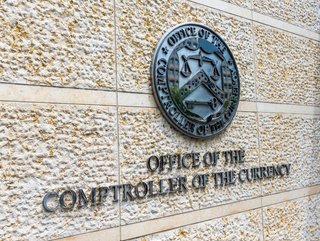US, OCC: Banks Should Manage Fintech Partnership Risks

The US banking regulator the Office of the Comptroller of the Currency (OCC) says that banks working with fintech partners should be responsible for actively managing the risks associated with such partnerships.
The OCC’s views were made known by its Acting Comptroller Michael Hsu earlier this week in a talk at Vanderbilt University, according to Reuters.
Indeed, Hsu has long-held concerns about regulatory gaps in the US payments system, claiming repeatedly that banks should be responsible for effectively and actively monitoring potential risks that arise from third-party partnerships with fintechs.
Managing risks: Should banks be solely responsible?
Increasingly today, banks and fintechs are entering into partnerships to drive transformation both to meet the demands of consumers and make back-end processes more efficient.
But as these digital ecosystems become more commonplace in the financial services industry, the question remains where responsibility lies for managing risks, from compliance to hacks and consumer protection.
The responsibility for many banking and fintech partners in the US is often shared, but where the line of this responsibility lies is often blurred, and, for regulators like the OCC, it is hard to know where risk responsibility truly lies.
For Hsu, the concern is that as these partnerships experience exponential growth, the responsibility for managing multiple risks becomes muddied, particularly when partnered firms have differing incentives.
The OCC’s stance, reaffirmed by Hsu, comes after the regulator issued a consent order to Blue Ridge Bank in Virginia which failed to correct previous issues raised by the OCC related to its collaborations with fintech partners.
The OCC is not the only US regulator to flag such concerns, in January this year the Federal Deposit Insurance Corp announced two consent orders relating to bank and fintech partnerships.
Now, the OCC says ultimate risk responsibility should lie with banks. Indeed, banks have larger resources and are the direct holders of customer assets, unlike a B2B operating fintech, but is this a fair approach?
Fair or not, it certainly makes the lives of regulators easier when adjudicating fault on issues of risk.
Recently, several fintech companies have voiced support for a national bank charter to place issues of risk responsibility into law. However, Hsu says this doesn’t mean fintechs should receive special treatment when it comes to regulatory adherence.
"We will not lower our standards, create a special regime, or take an overly expansive view of banking to entice new entrants or in the hope of bringing a particular activity into the bank regulatory perimeter," Reuters reports Hsu saying.
**************
Make sure you check out the latest edition of FinTech Magazine and also sign up to our global conference series – FinTech LIVE 2024.
**************
FinTech Magazine is a BizClik brand.







